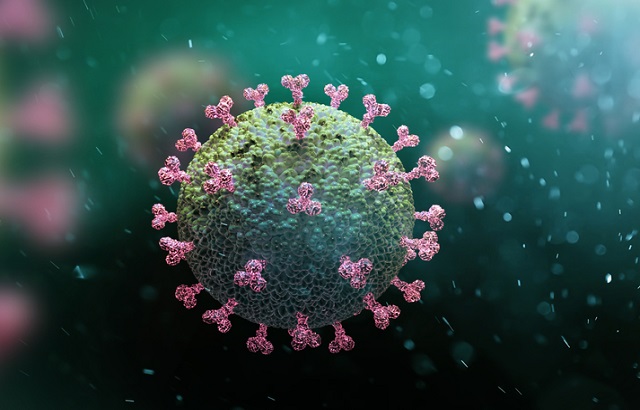
Heart injury found in half of Covid patients discharged from hospital after severe illness


Magnetic resonance imaging (MRI) scans have found heart damage in around 50 per cent of patients whose blood tests had shown they had some degree of heart injury whilst hospitalised with severe Covid-19 infections.

This injury was detected at least a month after discharge, according to research carried out by BHF researchers and published in the European Heart Journal. It included inflammation of the heart muscle, scarring or death of heart tissue, restricted blood supply to the heart and combinations of all three.
A team of researchers led by Professor Marianna Fontana, BHF Fellow at University College London studied 148 patients from six acute hospitals in London. This is the largest study to date to investigate hospitalised Covid-19 patients who had raised troponin levels indicating a possible problem with the heart.
Findings aren't applicable to people who've had milder illness
Dr Sonya Babu-Narayan, our Associate Medical Director, said: “The fact that this study looked at the hearts’ of the people who'd become severely ill with Covid-19 can’t be stressed enough. These findings aren’t applicable to people who’ve had mild or asymptomatic Covid-19 infections.
"The people who took part in the research were survivors of severe Covid-19. Whilst in hospital, they all had an abnormal troponin blood test which is a sensitive signal of heart injury. Half then went on to have abnormal heart MRI scans after they went home.
“Some people in the study may have had heart damage they did not know about before they caught the virus. People who had heart damage thought to be caused by the virus often had subtle injuries which did not stop the heart pumping normally. More research looking at the long-term effects of severe illness is needed so that we can learn how to prevent and treat any damage that Covid-19 does to the heart."
Critical illness can raise troponin
Troponin is released into the blood when the heart muscle is injured. Raised levels can occur when an artery becomes blocked or there is inflammation of the heart. Many patients who are hospitalised with Covid-19 have raised troponin levels during the critical illness phase, when the body mounts an exaggerated immune response to the infection.
Patients who had abnormal troponin levels were offered an MRI scan of the heart after discharge and were compared with those from a control group of patients who had not had Covid-19, as well as from 40 healthy volunteers.
The function of the heart’s left ventricle, the chamber that is responsible for pumping oxygenated blood to all parts of the body, was normal in 89% of the 148 patients but scarring or injury to the heart muscle was present in 80 patients (54%). The pattern of tissue scarring or injury originated from inflammation in 39 patients (26%), ischaemic heart disease, which includes infarction or ischaemia, in 32 patients (22%), or both in nine patients (6%). Twelve patients (8%) appeared to have ongoing heart inflammation.
The researchers will now follow up those people found to have heart damage to see whether it persists.

